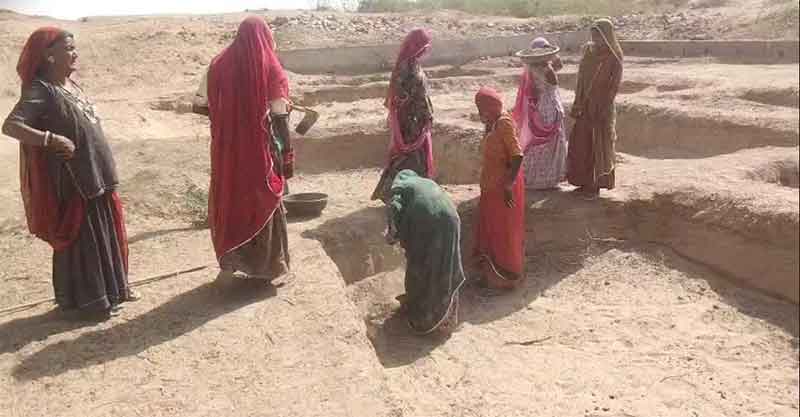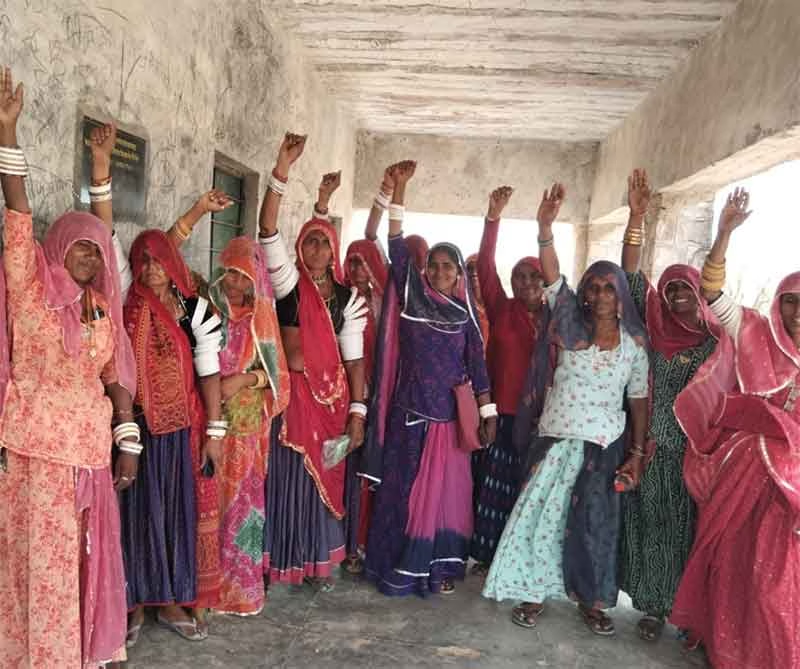
In 2005 India created a widely acclaimed law for providing 100 days employment guarantee in villages. At a time when the state was withdrawing from such responsibilities in many countries, this was seen as a hopeful sign of the continuing commitment to take up important roles and responsibilities for the cause of justice and for reducing rural poverty and unemployment.
This law, called the National Rural Employment Guarantee Act (NREGA), has become the base for creating a nationwide scheme called National Rural Employment Guarantee Scheme (NREGS). The name of Mahatma Gandhi has frequently been added to this law, so that it is often also called MG-NREGA. One indication of the reach of this scheme in a country with a rural population of over a billion people is that NREGA has become almost a household word in rural India. At its best this scheme, when nurtured by caring officials, panchayats (elected councils of rural decentralization) and activists, has made a huge contribution to helping rural workers and peasants and to development activities in general. At its worst, its implementation has been marred by large-scale corruption and fake work. In my recent travels to rural areas I have seen that there are more indications of actual implementation moving away from the actual law, although impressive achievements at a few places are still a reminder that this law and its scheme can achieve much more at the national level than what it has achieved so far.
In fact it is increasingly realized that with better implementation and more adequate resource allocation, the potential of NREGA can be much higher than its achievements so far, particularly in the context of the increasing realization of its great potential for protection of environment. Since its early days, the usefulness of NREGA for water-conservation and water-harvesting was realized and a significant share of the earlier works were devoted to this. However with the passage of time the usefulness of NREGA for a diversity of work related to environment protection in rural areas has been better appreciated and a significant share of this work can also contribute to a lesser or greater extent also to climate change adaptation and mitigation. If this is accepted, then the resources available nationally and internationally for climate change mitigation and adaptation can also be additionally tapped for utilization under NREGA. If the desirable implementation reforms can also be made, then the potential for more durable and sustainable achievements can also increase very significantly.
Increasing afforestation on the basis of indigenous species of trees, steps for regeneration of degraded forest and pasture land, soil and water conservation, repair and restoration of traditional water sources or removal of excessively accumulated silt and weeds from them, taking various steps that can help in at least partial rejuvenation of depleted or vanishing (more or less)small rivers and other water bodies, creation of farm ponds, cleaning of various water channels and when required deepening them at some carefully identified places, repair of embankments and protection walls—all these tasks are very helpful for villagers in various ways but in addition are also important components of climate change mitigation and adaptation. All this also helps to create the base in which natural farming and horticulture can prosper in better ways, thereby reducing the burden of fossil fuels. The use of diesel for lifting water can also reduce with increasing moisture and water conservation.
It is of course true that NREGA was initially envisaged more as a social justice law which was supposed to help to reduce rural poverty and unemployment. Of course this role of NREGA remains very important. However this does not mean that we should neglect or underestimate the other important role of very useful assets being created or very important tasks being completed in the curse of employment generation, of a kind that in turn provide the base for sustainable livelihoods to prosper in better ways and more or better protection being provided from disasters like droughts and floods.
To ensure that the quality of such work remains satisfactory and meets real and significant needs of people, there should be better and more participative, more careful planning and monitoring. There should be spaces in local administration where critical voices are also heeded and heard, and the provisions for checking corruption at all levels should be stronger. Social audits should be conducted regularly and in honest, sincere ways with the involvement and participation of local people.
If all this can be achieved and if there is availability of adequate funds particularly in areas of better achievement, then the potential of NREGA not just as a means of justice but also as a means of environment protection can be very high indeed, in fact much higher than what has been achieved so far. The combined realization on a huge scale of objectives of justice and environment protection, of climate mitigation and adaptation, of reducing poverty and unemployment while strengthening sustainable livelihoods, is the kind of achievement that almost the entire world needs and this kind of achievement will certainly get worldwide appreciation.
Subscribe to Our Newsletter
Get the latest CounterCurrents updates delivered straight to your inbox.
Bharat Dogra is Honorary Convener, Campaign to Save Earth Now. His recent books include Saving Earth for Children, Planet in Peril and a Day in 2071.















































